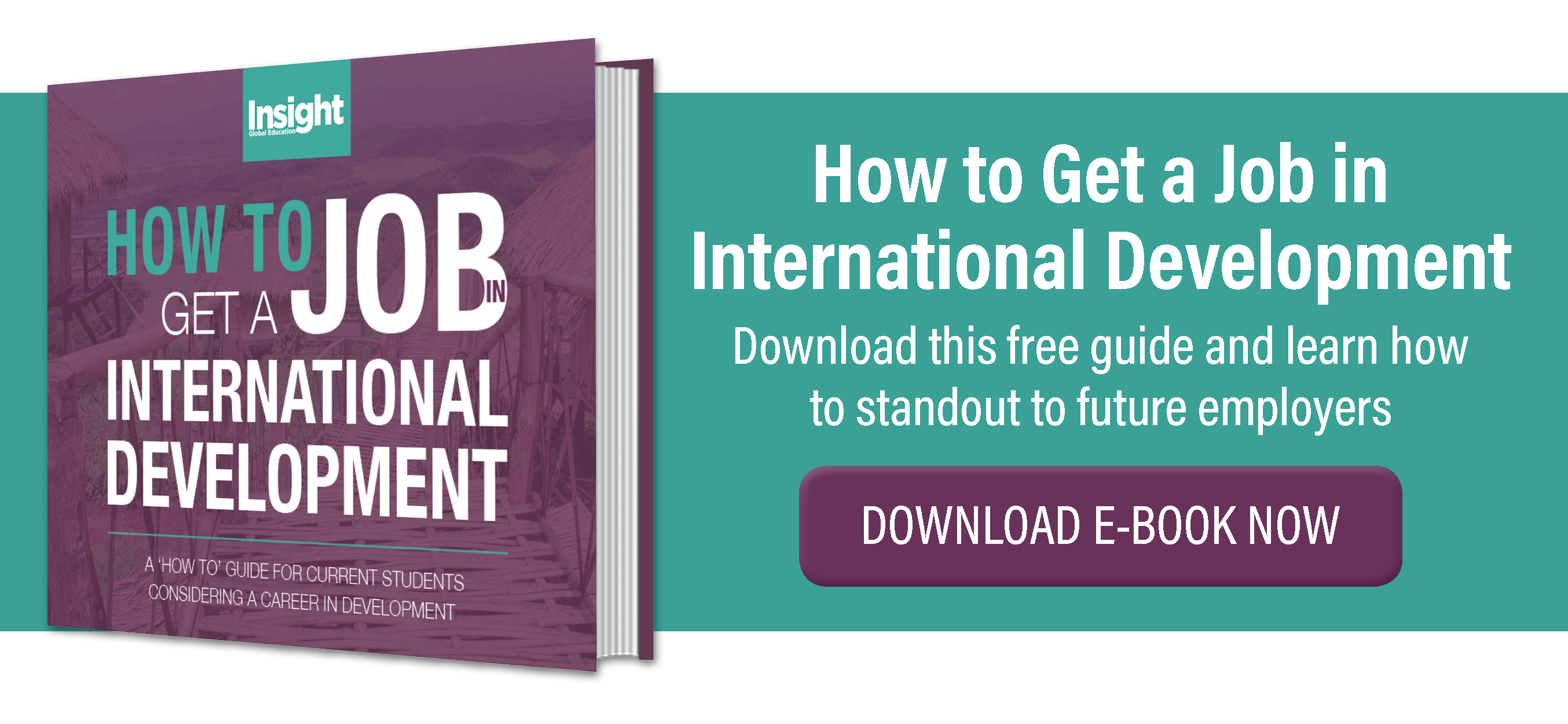So, you arrive in a new country and everything feels completely different. At first this is extremely exciting – the possibility of meeting new friends, trying new food, traveling, and learning. But over some time things start to feel different and you find that the initial euphoria is starting to wear off. You even feel a bit agitated and isolated, maybe a bit homesick. What happened to your original state of excitement and comfort?! Two words: Culture Shock.
.jpg?width=640&name=Ecuador%20(114%20of%20161).jpg) |
| Traveling to new places can be an exciting experience, but what happens when you start feeling agitated and frustrated at the differences between here and home? |
Culture shock is an experience a person can have when one moves to a cultural environment which is different from their own. This experience affects everyone differently and can manifest in a variety of ways such as feeling annoyed, frustrated, confused, lonely, overwhelmed, and anxious. Upon settling in to a new environment you might be confused as to why you have to bargain for most things? Why is someone commenting on my appearance? Why are people not aware of personal space?
It is important to keep in mind that almost everyone experiences culture shock, even the most experienced travellers. While culture shock may initially sound like a bad thing, it’s important to know that deep culture shock can actually be positive. Perhaps you think you aren’t well travelled or not adapting easily enough, but the truth is the deeper you experience culture shock, the more you are going outside of your comfort zone. That means you are growing personally (which is usually one of the biggest reasons behind participating in an internship or travelling!)
Here is some important information about the stages of cultural awareness that will help you understand what you’re going through, and four handy tips on how to handle culture shock!

The 4 phases of cultural awareness
1) Unconcious incompetence
The first phase, also referred to the honeymoon stage, is when you are caught up in the excitement of what your new destination has to offer you. Initially you will be charmed by the differences – new environments, new people, and new opportunities! These differences will feel comforting at first
2) Conscious incompetence
Gradually all the differences will become apparent and issues may start to arise – you get lost, you are having difficulties communicating, everything feels disorganized. Typically this is when you will start to feel overwhelmed, irritated and maybe even a little hostile, especially when things don’t go the way you want.
Feeling homesick is to be expected. However, now is the most important time to practice non-judgement: hear instead of react, and reflect more intently about your surroundings. During this stage if you choose to immerse yourself in a culture rather than judge it, you will be able to build your resiliency and work towards acquiring strong cross-cultural competency.
3) Conscious competence
In the third phase, although you still don’t completely feel comfortable, you begin to feel more relaxed about the differences that seemed so abrupt at first. If you have immersed yourself in the culture, it's very likely you have a positive outlook and an interest in learning more about your host country. You will learn how to behave in ways that are culturally appropriate – learning some of the local language, how to dress, where you can find the freshest fruit, and even how to navigate the city without Google maps.
4) Unconscious competence
The fourth and final stage of cultural awareness is where we all hope to be! You have reached a high level of comfort in your new surroundings. It’s very likely you have developed strong relationships with local staff or friends and now understand cultural nuances more clearly. Of course you miss your friends and family, but you have new friends and activities that have become a part off your life! And most importantly, being culturally sensitive takes little effort.
 |
| The four phases of cultural awareness are: unconscious incompetence, conscious incompetence, conscious competence, and unconcious competence. |
Coping Strategies
Now that the four phases of cultural awareness have been examined, it’s important to provide 6 important strategies to deal with culture shock that will enable you to navigate culture shock (somewhat smoothly).
1) Be prepared
Learn as much about your host country as possible! Read through travel forums online, guidebooks, news reports, or novels. Talk to people who have travelled or interned there, or for in depth advice, people who are actually from there. It is important to know as much as you can about what’s considered rude or polite, how the work culture is different than your own, and try to mentally prepare yourself as much as possible for some of the differences you may encounter.
2) Developing your own coping strategies
Make a list of things you can do to help you feel better and consult that list whenever you’re feeling down! This will be especially important during stage two when you may be experiencing negative feelings about your host country.
Journal: Write positive things that happened to you everyday, a positive moment, or something challenging that you’re grateful for!
Read: Now that you’re actually in your host country, try to find articles or books by authors from that area and learn as much as you can! Or perhaps you can make time for that book you’ve always wanted to read.
Exercise: No explanation needed, endorphins are good for the soul! Research any gyms or fitness classes happening in your area.
Make yourself a comforting meal: There’s nothing that can bring a smile to your face like comfort food.
Find an activity: Such as cooking or art classes, trivia nights, or sporting events that can help you create a routine and make new friends!
Take advantage of your emotional resources: Reach out to family and friends back home, other interns, or friends you’ve met while traveling. You are not alone in this experience and talking through your challenges could alleviate stress and anxiety.
Whatever your coping strategy is, find something that makes you feel good!
3) Push yourself to make local friends and get involved in the community
Although it seems counter intuitive, one of the best ways to work through culture shock is continue to push yourself outside your comfort zone. This can be done by developing friendships with local people, staff members at your new work, or finding ways to interact with the community. Engaging in cross cultural relationship building will not only help you learn about the culture and country you are in but is also a key skill in any career path!
4) Have an open mind
Arguably the most important strategy you can have is to maintain a positive and open mind. Throughout every stage of culture shock, try to let go of your own cultural biases and assumptions in order to better understand your host country. Practice non-judgment and patience, and be aware that you will never be fully able to understand a different culture than your own, and that’s okay! Accept that this is an exciting time to learn and develop new skills through any challenges that come your way!
.jpg?width=640&name=Ecuador%20(71%20of%20161).jpg) |
| Understanding and coping with culture shock will enable you to make the most of your travel experience! |
Now that you have an understanding of what culture shock is and some coping strategies, get out there and enjoy every travel experience! Don’t let the fear of culture shock hold you back. Instead, be curious, open, and excited about everything this journey has to offer you – including the uncomforting experience of culture shock!
Just as traveling to a new place different from home can bring culture shock, going back home after a long time away can bring up reverse culture shock! Read our article here to find out what reverse culture shock is and how to deal with it.
Want to learn more about studying and interning abroad opportunities? Click below for more information!




Leave A Comment